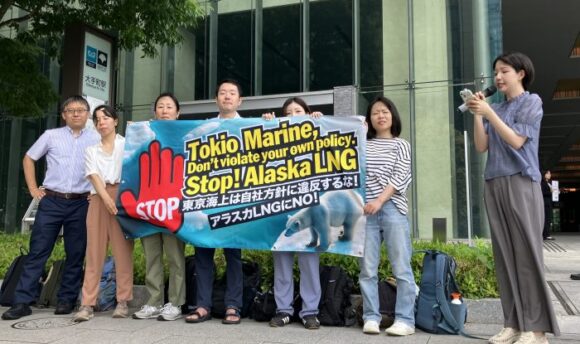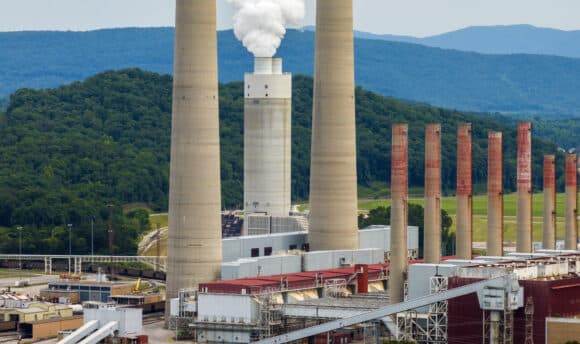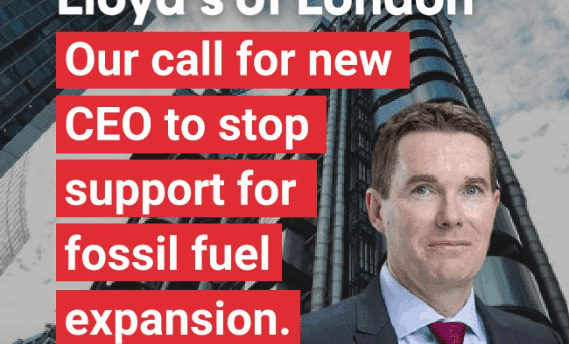Following the complaint lodged by Ugandan, Tanzanian and U.S. based human rights groups alleging that Marsh is violating OECD guidelines for Multinational Enterprises by serving as insurance broker for the planned East African Crude Oil Pipeline (EACOP), the Insure Our Future campaign is calling on the world’s largest insurance brokers to take notice of the evidence and to state their position on EACOP.
Insure Our Future has written to the CEO of Marsh, Martin South, calling on him to withdraw from brokering for EACOP and to the CEOs of the other three dominant global insurance brokers AON, Willis Tower Watson and Arthur J Gallagher, calling on them to make a clear statement that they will also not offer brokerage services for the hugely destructive and controversial EACOP project.
The complaint filed last week alleges that Marsh, the world’s largest insurance broker, is violating international OECD guidelines for responsible business conduct by serving as insurance broker for the highly controversial East African Crude Oil Pipeline (EACOP). The filing includes links to a solid body of evidence to substantiate the complaint. Marsh’s failure to conduct adequate human rights and environmental due diligence before engaging on this project, and its ongoing contributions to its harmful impacts, constitute a breach of the company’s responsibilities under the OECD Guidelines, according to the complaint. The complainants are calling on Marsh to bring its operations back into alignment with the OECD guidelines by withdrawing from its role as broker for the project and committing to abstain from offering brokerage services for EACOP in the future.
“Marsh’s credibility is on the line here. Marsh's statement to the media in response to the complaint is meaningless corporate spin which only reveals Marsh to be out of touch with or denying the reality of climate change and the actions necessary to address it. No new oil and gas projects are aligned with keeping global warming under 1.5C in line with the Paris Agreement and scientific consensus. In supporting the EACOP Marsh is not enabling an energy transition – it is aiding and abetting climate and human rights crimes.”
“Insurance brokers cannot ignore human rights, the environment or the climate crisis when deciding which projects or clients they will support to find insurance. Marsh has now had a week to consider the credible and damning evidence presented in the OECD complaint, and it should respond to the evidence presented by immediately withdrawing from its role as broker for EACOP.”
“We also call on the CEOs of the world’s three other major insurance brokers, AON, Arthur J Gallagher and Willis Tower Watson to take account of the available evidence and to publicly commit that they will abstain from offering brokerage services for the hugely destructive and controversial EACOP project. No company that expects to be taken seriously on Environment, Social and Governance issues should provide services to EACOP.”
“The world's four largest reinsurance companies Munich Re, Swiss Re, Hannover Re and SCOR and many leading insurers including Allianz, AXA, Generali, Talanx and Zurich are amongst at least 22 re/insurers who have all already rejected provision of re/insurance to EACOP. However some brokers appear to see it as their role to help their fossil fuel clients evade these net zero and human rights commitments, rather than to support them. Marsh and other leading brokers should make clear that they support human rights, climate science and the action taken by leading re/insurers. They should immediately make a clear comment that they will not provide insurance brokering to EACOP.”
About EACOP
The EACOP would be the world’s biggest heated oil pipeline, stretching nearly 900 miles (1,443 kilometers) through the heart of East Africa. The project, developed by the French oil company Total Energies and the Chinese state company CNOOC, has already caused large-scale displacement of local communities and poses grave risks to protected environments, water sources and wetlands in both Uganda and Tanzania. Those include the Lake Victoria basin, which millions of people rely upon for drinking water and food production. If completed, it would also enable the extraction and transport of enough oil to generate over 34 million tons of CO2 emissions per year at peak production, exacerbating the ongoing climate emergency.
Since its inception, the project has faced opposition from affected communities along the pipeline route and their advocates, as well as the global #StopEACOP campaign that they built. For more on this, visit www.stopeacop.net.
Contact details for Insure Our Future spokespeople:
- Lindsay Keenan, Insure Our Future (Based in Sweden), Mobile: +46 735 091 033
- Mary Sweeters, Insure Our Future (Based in California), Mobile: 1-951-275-4676
- Kalin, Insure Our Future (Based in Chicago), Mobile: 1-253-249-1103
Notes / references:
- Top Global Insurance Brokers 2022: AM Best Top Global Insurance Brokers 2022 Edition July 2022
Marsh McLennan retains the No. 1 spot in Best’s Review‘s Top Global Insurance Brokers ranking with $19.80 billion in total revenues, $7.60 billion ahead of second-place Aon plc.
These four are the industry giants. Their annual revenues are:
- Marsh Mclennan – USD $19.8 billion
- AON – USD $12.2 billion
- WTW – Willis Tower Watson – USD $9 billion
- Arthur J Gallagher - USD $6.9 billion
- Marsh spokesperson Sally Roberts: The Hill – 8 Feb 2023
Marsh spokesperson Sally Roberts wrote The Hill that despite its support for the energy transition, geopolitical concerns made “a secure energy supply crucial for the global economy and society as a whole.” – “We believe all communities are best served by working with operators of clean energy assets to accelerate progress to a lower carbon world and with traditional energy clients to enable them to manage the risks associated with current projects and make the transition as quickly and responsibly as possible.”



